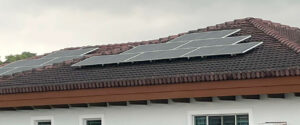MANY households are interested in adopting rooftop solar power systems, but concerns about provider trustworthiness and high costs hinder their adoption, according to a study from Ateneo de Manila University.
Homeowners recognize that solar energy contributes to environmental protection by reducing greenhouse gas emissions and air pollution, helping combat the effects of climate change, according to a study by Department of Economics Professor Rosalina Palanca-Tan, published in the journal Challenges in Sustainability.
In a survey of 143 respondents, 82% expressed some interest in adopting solar panels, but only 20% had firm intentions to do so.
Despite the economic and environmental benefits, respondents were reluctant to invest due to the upfront cost needed for installation.
According to the study, a home rooftop solar power setup costs approximately $1,700 (₱100,000), equivalent to more than half a year’s salary for minimum wage workers.
“Many households are unsure if this initial expense is justified by long-term financial and environmental returns,” it said.
The survey found that, aside from costs, trustworthiness of providers, clarity on warranties, and perceived installation quality were equally important considerations.
The study found that while most respondents understood renewable energy’s role in combating climate change, few knew the specific benefits of rooftop solar power or how to find reliable installation services.
“Thus, the study urges stronger government intervention and public education campaigns. In particular, the study suggests improving net metering rates, expanding access to financing options, and accrediting trustworthy RTSP (rooftop solar power) providers to build consumer confidence,” the study said. — Sheldeen Joy Talavera
